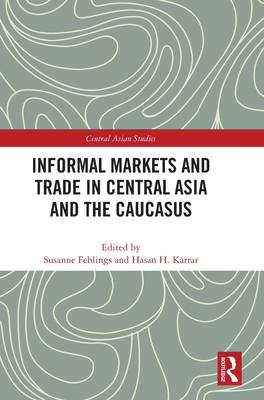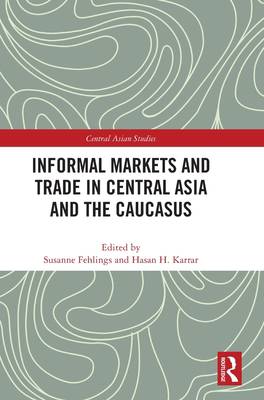
- Retrait gratuit dans votre magasin Club
- 7.000.000 titres dans notre catalogue
- Payer en toute sécurité
- Toujours un magasin près de chez vous
- Retrait gratuit dans votre magasin Club
- 7.000.0000 titres dans notre catalogue
- Payer en toute sécurité
- Toujours un magasin près de chez vous
Informal Markets and Trade in Central Asia and the Caucasus
Description
This edited book introduces new research on informal markets and trade in Central Asia and the Caucasus. The research presented in this volume is based on recent field research in Armenia, Georgia, Kazakhstan and Kyrgyzstan, as well as Beijing, Guangzhou, Yiwu and the Xinjiang Uyghur Autonomous Region in China. The nine chapters in this book illustrate how informal markets and trade in Central Asia and the Caucasus have provided space for millions of people across the region to negotiate changes in state and society in the three decades since the breakup of the Soviet Union and the emergence of successor states.
Collectively, the book suggests that informality should be seen as a normative order for polities in Central Asia and the Caucasus for three reasons: (1) The inability - or unwillingness - of the states to measure commercial transactions. (2) The highly personalized nature of small business operations that rest on networking and social relations, oral agreements and trust. (3) Markets and bazaars being embedded within states in which clientelism frequently thrives.
This book is a significant new contribution to the study of trade and informal markets in Central Asia and the Caucasus, and will be a great resource for academics, researchers and advanced students of Sociology, History, Politics, Business, Economics, Social Anthropology and Geography.
The chapters in this book were originally published as a special issue of the journal, Central Asian Survey.
Spécifications
Parties prenantes
- Editeur:
Contenu
- Nombre de pages :
- 158
- Langue:
- Anglais
- Collection :
Caractéristiques
- EAN:
- 9781032195810
- Date de parution :
- 12-04-22
- Format:
- Livre relié
- Format numérique:
- Genaaid
- Dimensions :
- 170 mm x 244 mm
- Poids :
- 471 g






